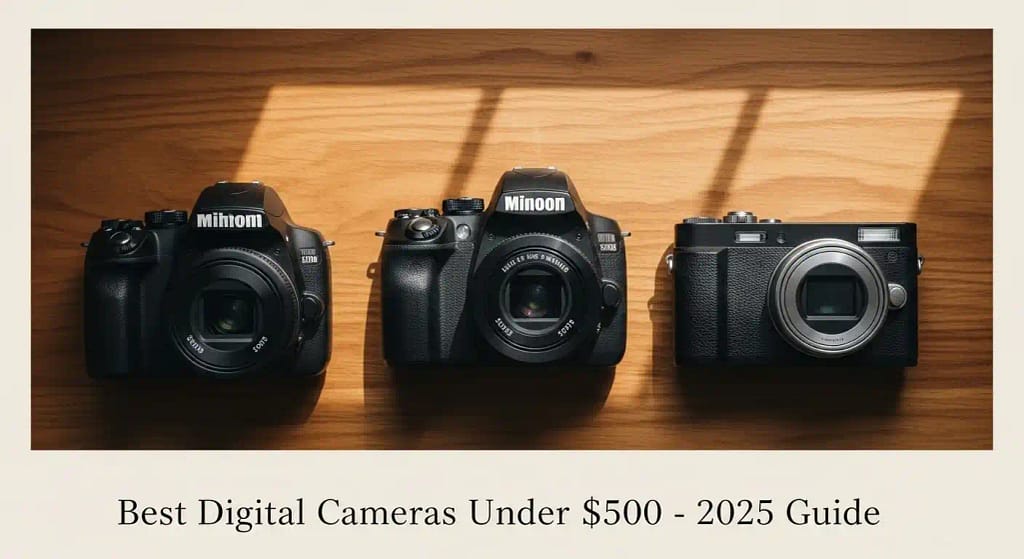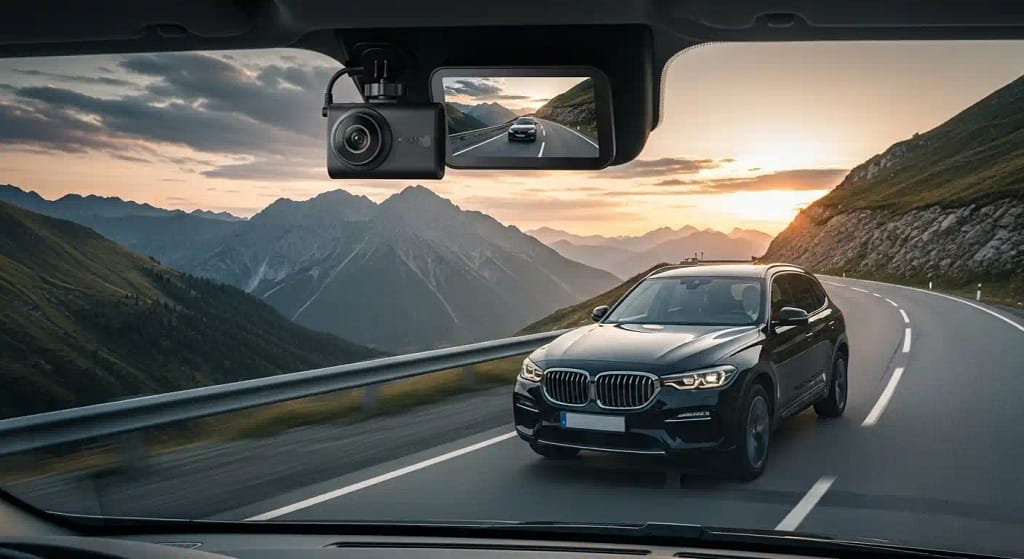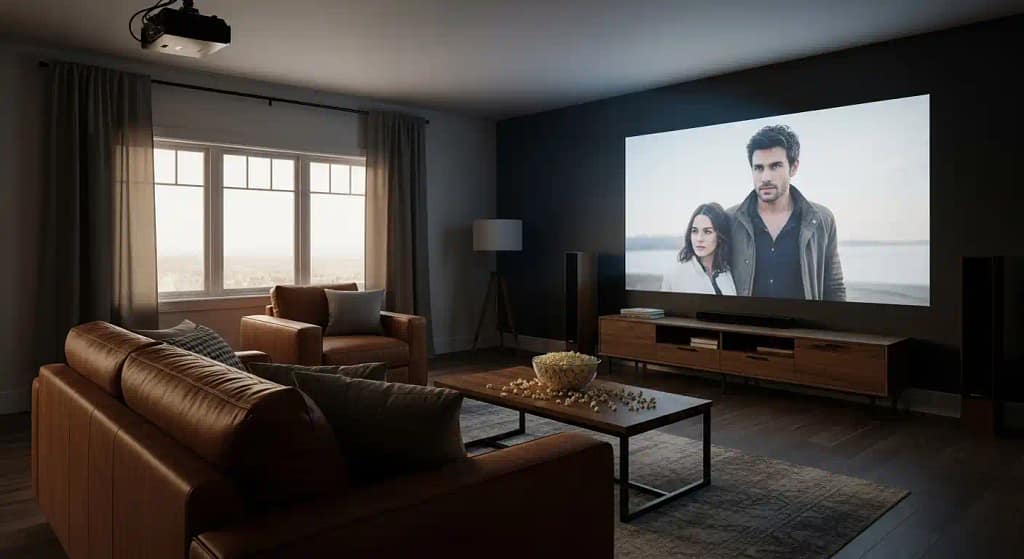
If you’re comparing DSLR vs mirrorless for family photography, you’re not alone. Like when your baby smiles for the first time, your kid’s birthday party or a summer trip, the time you spend with your family is so short. The right camera is important if you want to remember those special times.
This article will walk you through the real world pros and cons of each, especially through the lens of everyday family use. We’re not here to give you specs, we want to help you choose a camera that you’ll love.
Also read: Best Digital Cameras Under $500 – Full Guide
DSLR vs Mirrorless for Family Photography – What’s the Real Difference?
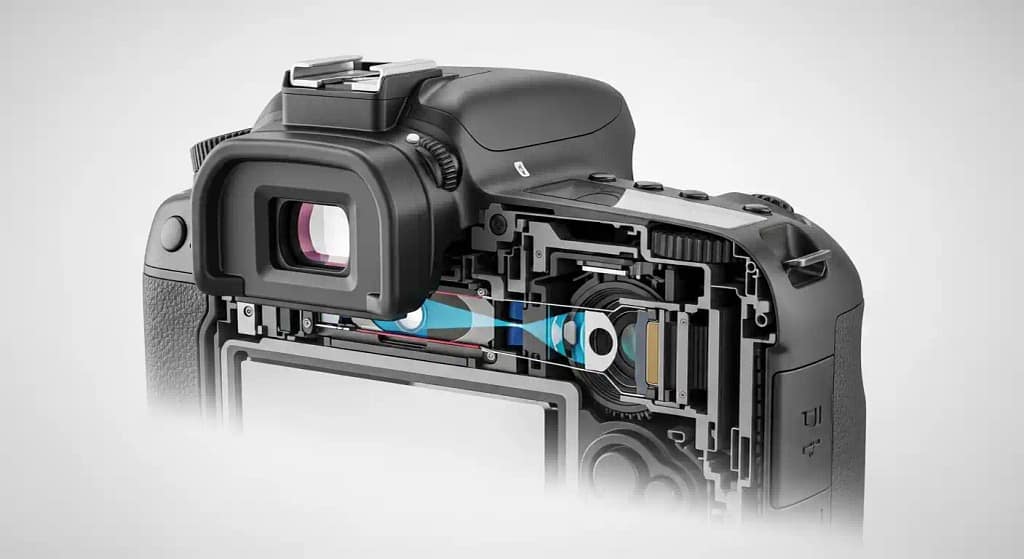
A DSLR (Digital Single Lens Reflex) camera has a mirror that lets you see the same thing that the lens does. People know that these cameras last a long time, have long battery lives and work with a lot of different lenses, especially Canon and Nikon lenses.
A mirrorless camera on the other hand doesn’t need one. Instead, light goes straight to the sensor and the preview appears on a screen or digital viewfinder. This design lets manufacturers make them smaller and lighter, great for parents who are always on the go.
Mirrorless vs DSLR: Which Works Best for Parents?
1: Mirrorless Portability for Family Photography
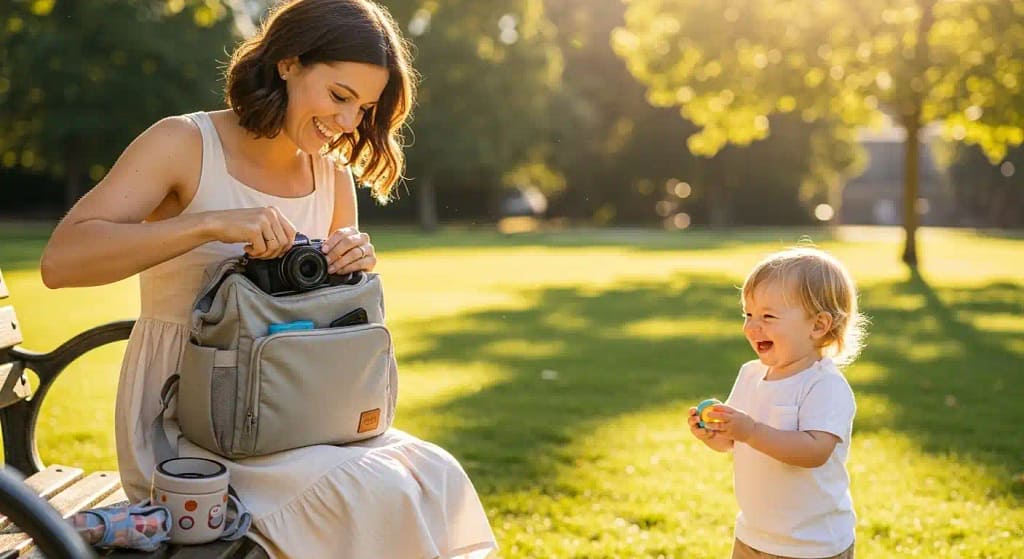
2: Fast Autofocus in DSLR vs Mirrorless
Both camera types can shoot fast. But many mirrorless cameras now have better real time autofocus than DSLRs especially when it comes to watching the eyes or face, which is great for taking pictures of a child who is moving around.
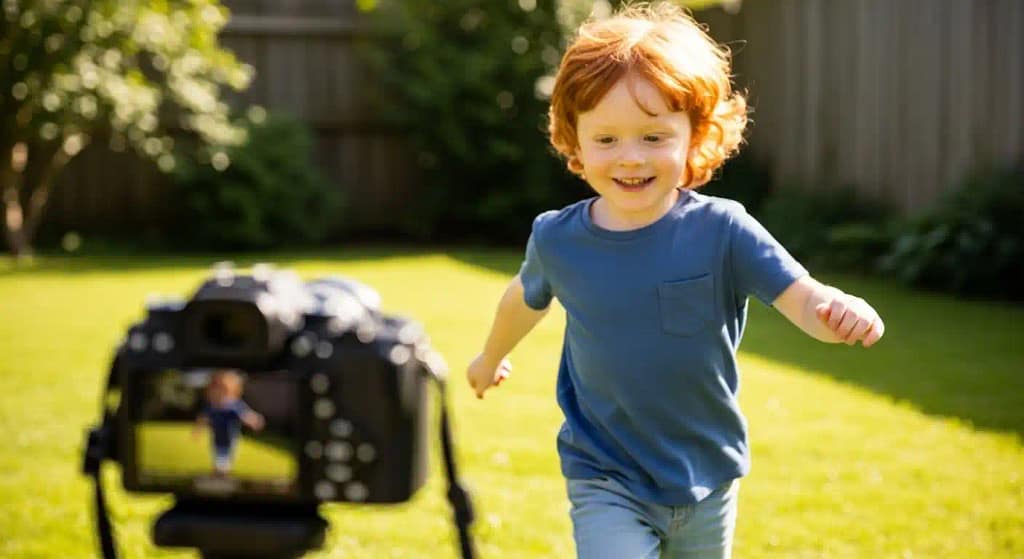
3: DSLR Battery Life vs Mirrorless for Family Trips
This is where DSLR photos are better.
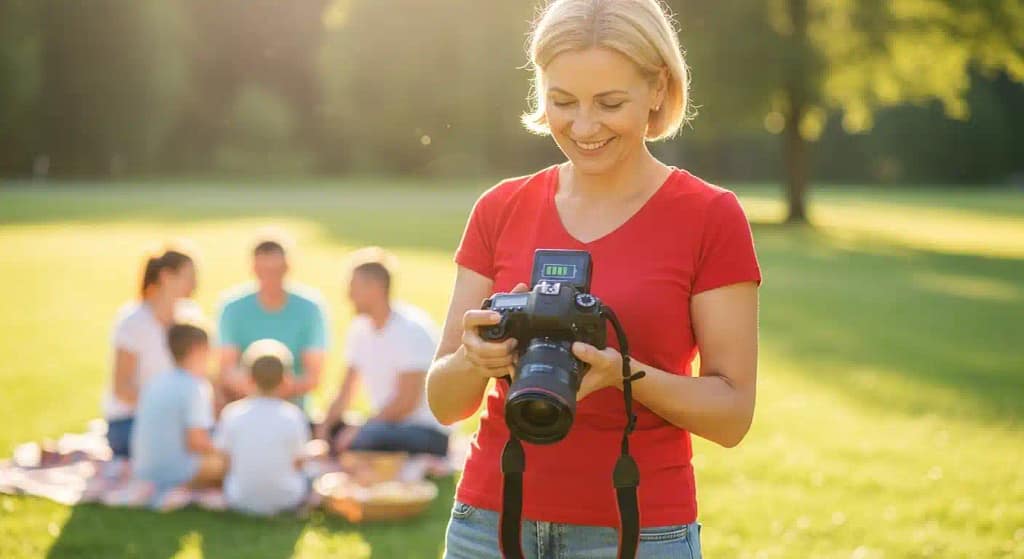
Their batteries can last all day because they don’t use digital screens all the time. There should be an extra battery for your mirrorless camera because they tend to die faster.
4: DSLR vs Mirrorless – Image & Video Performance for Families
For photos, both systems are strong. But for video, mirrorless is often better. For movies like birthday songs or soccer games, most mirrorless versions record in 4K and have better focusing.
Mirrorless Camera vs DSLR – Pros and Cons for Family Photography
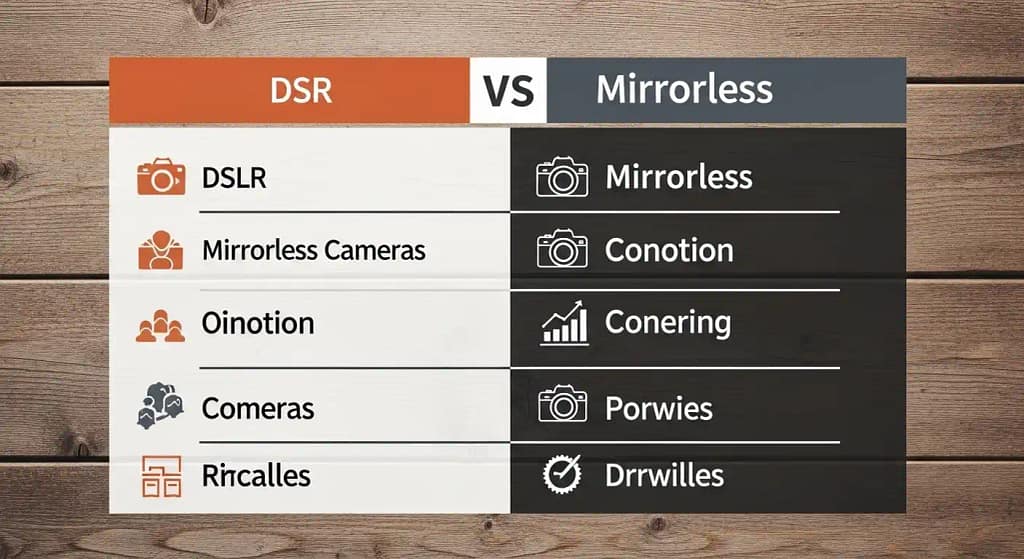
Mirrorless Advantages:
- Lighter, more portable
- Advanced autofocus for photos and video
- Great for silent shooting around sleeping babies
- Often has newer tech and faster innovation
DSLR Advantages:
- Longer battery life
- More traditional photography feel
- Optical viewfinder with zero lag
- Great second-hand lens market
Are you still not sure if mirrorless or DSLR is better?
The answer relies on what’s most important to you: price, weight or battery life.
Best Family Cameras – DSLR and Mirrorless Options for Beginners
If you’re searching for the best family camera, here are great DSLR and mirrorless picks. Choose from the following camera picks that parents always like:
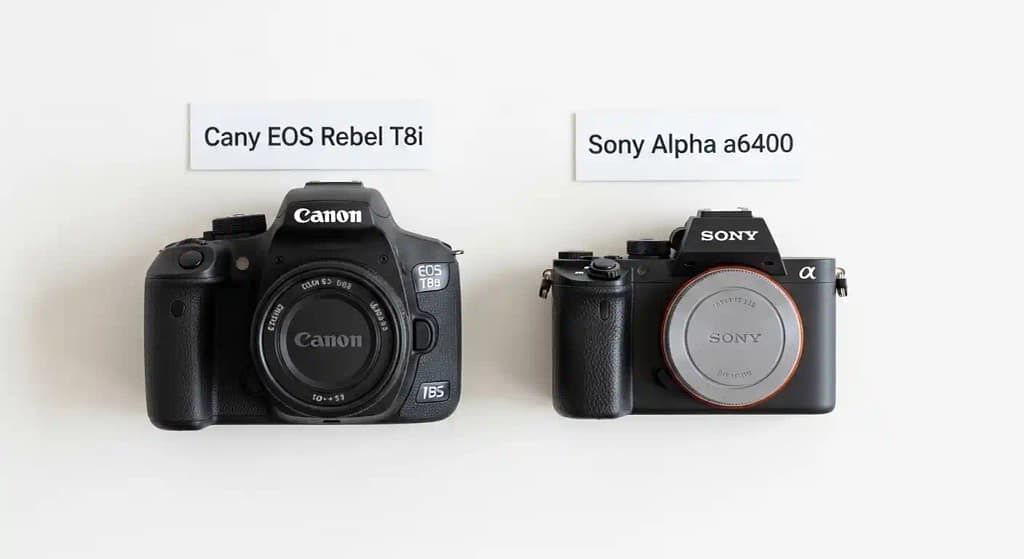
Top DSLRs:
- Canon EOS Rebel T8i
Easy to use with great color tones and wireless sharing.
- Nikon D5600
Compact for a DSLR perfect for portraits and daily use.
Top Mirrorless Picks:
- Sony Alpha a6400
Its size is small so you can take it anywhere.
- Fujifilm X-T30 II
It’s quick, stylish and has great color right out of the box.
Whether you’re looking at Canon DSLR vs mirrorless or Nikon DSLR vs mirrorless, both brands have choices that are good for families.
Learn more about camera basics from B&H Photo Video or DPReview
FAQs – DSLR vs Mirrorless for Family Photography
What’s better for family photography DSLR or mirrorless?
And it works better for video and is easier to use. DSLRs come with more lenses and can be charged more often.
Which is easier to learn?
For newbies, mirrorless is often easier. Touchscreen interfaces and live exposure previews help a lot.
Are mirrorless cameras quiet?
Yes! Many shoot completely silently—ideal for newborn shoots.
Do mirrorless cameras have fewer lenses?
In the past yes, but now brands like Sony, Canon and Nikon all offer robust mirrorless lens choices.
What is the difference between DSLR and mirrorless in quality?
Both offer top-tier results. Larger cameras, better lenses and cameras that are easy to use are more important.
Final Thoughts – Choosing the Right Family Camera
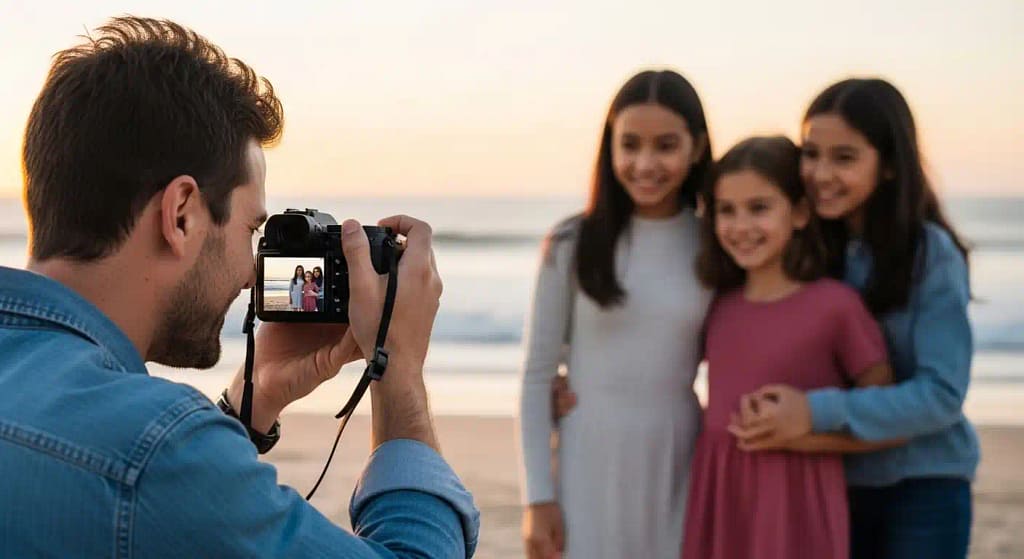
When picking the best camera for your family, balance ease of use with features. See your daily routine. The mirrorless camera is light, quick and can record video, so it might be the best choice if you have kids, run chores and take the odd weekend trip.
A DSLR is a good choice if you want to take pictures for fun or to record long events.
The best camera is the one you use every day. Make sure it works for you, not the other way around, whether it’s a mirrorless or DSLR camera.
